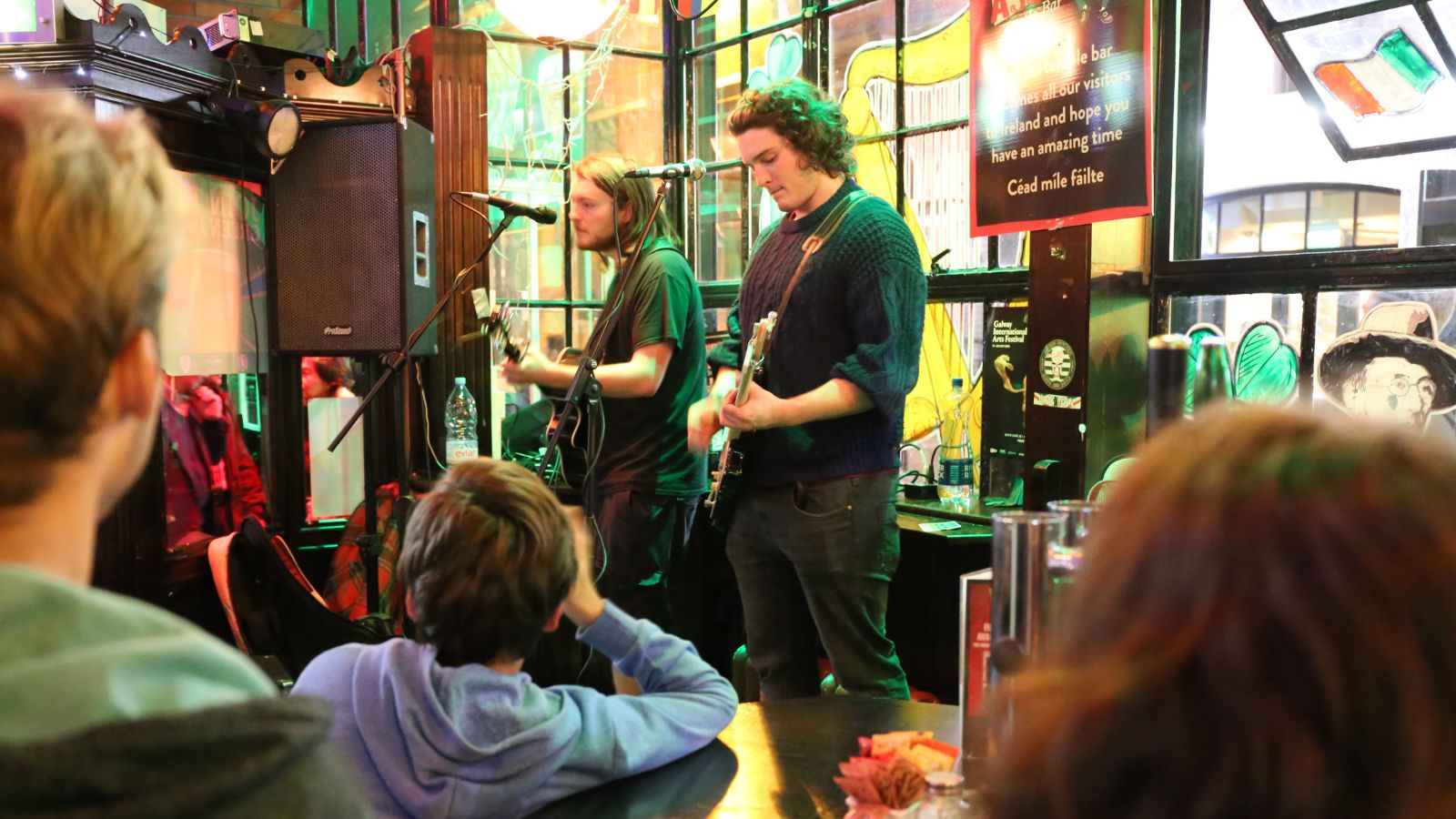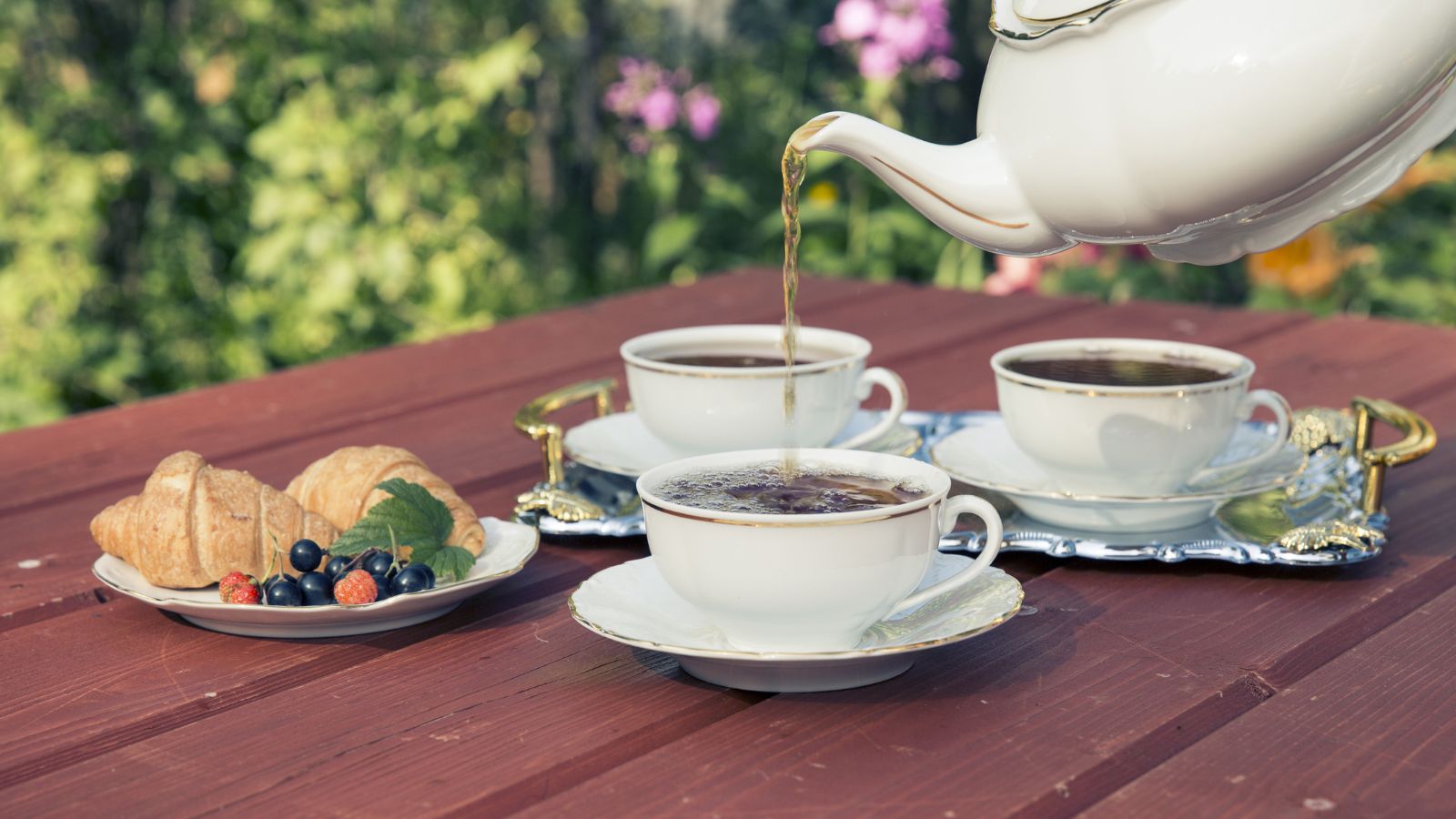When visiting or living in the UK, Americans often notice certain cultural norms that leave them scratching their heads. Some of these habits are so ingrained in British society that they go unspoken, but to an outsider, they can seem downright strange.
The Art of Queuing

To Brits, queuing is almost sacred, but for Americans, while waiting in line is normal, there isn’t the same reverence for the queue. In Britain, whether it’s a bus stop, a pub, or even an ice cream van, there’s an unspoken understanding: you wait your turn.
Apologising for Everything

British people apologise for nearly everything, even when it’s not their fault, and even when someone bumps into you, the first response is often an apology. American people, who tend to reserve apologies for when they actually mean it, can find this overuse of “sorry” confusing.
Obsession with Tea

Those from America love their coffee, but Britons live for tea, and Americans, who enjoy tea too but not with the same intensity, often find the British attachment to this drink a little extreme. Tea, to Brits, is a comforting ritual, while to many Americans, it’s just another beverage.
Weather Talk Is Essential

For Brits, discussing the weather isn’t just small talk – it’s a daily necessity. It’s an easy, non-controversial way to fill awkward silences, and it’s a great conversation starter, yet U.S. locals tend to dive into topics like work or hobbies when chatting with strangers, so they find it odd.
Avoiding Direct Complaints

When something goes wrong, UK residents often avoid direct confrontation, preferring to keep their dissatisfaction subtle. For example, rather than sending food back at a restaurant, they might just quietly eat it – or complain softly to a companion afterwards—so Americans, who are often more upfront about voicing concerns, may find this frustrating.
The Humble Brag

In Britain, self-promotion is often seen as boastful and arrogant, and instead, Brits prefer the “humble brag” – where they downplay their achievements and make light of them. Those from the U.S., who are generally more comfortable with direct pride in their accomplishments, find this tendency to understate things a bit ridiculous.
Strict Rules on Saying “Cheers”

“Cheers” doesn’t just mean raising a glass in the United Kingdom; it’s also a casual way to say thanks or goodbye. You might hear it after holding a door open for someone or as you leave a shop, but for U.S. folks, this multi-purpose word can be confusing—especially if they only associate it with toasting a drink.
Never Making a Fuss

One of the golden rules in British culture is to avoid making a fuss, and this can apply to all sorts of situations, including dealing with poor service or a mix-up in a social setting. Brits are masters of the stiff upper lip, preferring to keep calm and carry on rather than making a big deal out of things.
The Love for Awkward Silences

In the USA, an awkward silence is something to be avoided at all costs, and people tend to fill gaps in conversation with jokes or new topics. In Britain, though, awkward silences are simply part of the flow of conversation, and they’re not something to worry about.
Rounding Up the Bill

When dining out with friends, British people often round up the bill rather than splitting it exactly, and this means tossing in a little extra to cover the tip or just make the numbers even. Americans, who are used to splitting the bill down to the last cent, find this laid-back approach odd.
Sitting in Silence on Public Transport

British public transport is often a study in silence, whether it’s a train or a bus, as most people keep to themselves, reading or staring out the window. Striking up a conversation with a stranger is generally frowned upon.
Using Sarcasm as a Second Language

Brits have a unique sense of humour, and sarcasm plays a huge role in it, with it commonly being dry and subtle, leaving some Americans struggling to tell whether someone’s being serious or not. While Americans enjoy sarcasm too, British sarcasm can be so deadpan that it’s easy to miss.
Preferring Subtlety Over Directness

While those from the U.S. tend to be more direct in their communication, Brits often prefer subtlety. Rather than coming right out and saying something, Brits might hint at what they mean or soften their words with phrases like “if you don’t mind” or “just a thought.”
The Endless Love of Pubs

Pubs are more than just a place to grab a drink, they’re a cornerstone of British social life, for meeting friends or grabbing a quiet pint—the pub is where much of British life happens. Americans, who are used to bars that tend to be louder and more high-energy, find the British love for the quiet, often cosy pub a bit puzzling.
Not Looking at Each Other in Lifts

Stepping into a lift in Britain can feel like stepping into a zone of silence and averted gazes, and UK people tend to avoid eye contact, preferring to stare at the floor or the door instead. For U.S. travellers, who are more likely to strike up a conversation or at least acknowledge others with a nod or smile, this can feel strange.
Maintaining a Stiff Upper Lip

The idea of the “stiff upper lip” – staying calm and showing little emotion in difficult situations – is deeply ingrained in British culture. Brits tend to keep their emotions in check, especially in public, and this stoicism can seem overly reserved or even cold to Americans.
Offering Tea in a Crisis

It doesn’t matter what’s going wrong – whether you’ve lost your job, missed a bus, or had your heart broken – a British person’s first response is often to offer a cup of tea. To Americans, this seems like a bizarrely ineffective solution to life’s problems, but for Brits, tea is a source of comfort.
Underplaying Everything

In Great Britain, there’s a tendency to downplay almost everything, whether it’s achievements or disasters. Instead of saying something is “great” or “terrible,” a Brit might describe it as “not bad” or “a bit of a bother,” and this understated approach can leave Americans, who are more likely to speak in extremes, feeling a bit lost.
Using Far Too Many Polite Phrases

Politeness is deeply ingrained in British culture, and you’ll often hear Brits using phrases like “would you mind terribly” or “I was wondering if it might be possible.” To Americans, this can feel overly formal and a bit excessive, as they’re used to more straightforward requests.
Never Complaining About the Weather – Just Talking About It

Brits love to talk about the weather, but they rarely complain about it outright. Whether it’s pouring rain or unusually hot, a Brit is more likely to comment on it than actually whinge about it; Americans, who are more comfortable venting their frustrations, might find this reserved approach to the weather odd.







